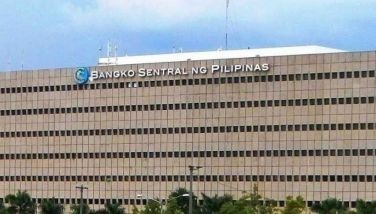IMF, BSP: Address stresses triggered by tighter monetary policy
MANILA, Philippines — The Philippines needs to address risks brought about by a spate of aggressive rate hikes delivered by global central banks, according to the International Monetary Fund (IMF) and the Bangko Sentral ng Pilipinas (BSP).
During the opening of the 2023 BSP-IMF Financial Stability conference, IMF deputy director for monetary and capital markets development May Khamis said the world is living in an era of unprecedented uncertainty as global central banks scrambled to raise rates to contain inflation, derailing the rebound from the impact of the COVID-19 pandemic.
“Stresses triggered by the tighter monetary policy may result in further bouts of financial instability. For example, concerns have also been growing about conditions in commercial real estate markets, and there is potential for a broader sell-off in global equities, the value, which remain very stretched in many countries. We worry about a spread of loss of confidence to non-banks since liquidity backstops and resolution mechanisms are less well developed compared to banks,” Khamis said.
She said that bank exposure to the highly leveraged corporate and household sectors within the region is another key area of concern, especially as the two sectors are highly vulnerable to rising borrowing costs.
While the IMF is seeing softer rate hikes, Khamis said the outlook for economic growth, especially in the US and China, is deeply uncertain.
“This adds another layer of concerns for financial markets and institutions. For countries in this region, the recovery has been quite positive and the outlook less challenging than in other regions. But the uncertainty remains very high,” she said.
For one, the BSP has even matched the aggressive rate hikes delivered by the US Federal Reserve point-by-point to maintain a healthy interest rate differential of 100 basis points to stabilize the peso.
The BSP has raised interest rates by 425 basis points since it started its tightening cycle in May last year to tame inflation and protect the peso.
Khamis also cited the string of bank failures in the US as well as the problem with a globally systematically important bank in Switzerland as rate rises have had an impact on the financial sector.
“Stresses triggered by the tighter monetary policy may result in further bouts of financial instability,” she said.
In hosting the conference with a theme “The New Frontier of Financial Stability: Global Problems, Global Solutions, Local Challenges,” Khamis said the “IMF sees the need to continue learning from each other, enhancing our ability to analyze and address risks.”
She said the IMF produces the Global Financial Stability Reports, pointing out the risks as we see then, while Financial Sector Assessment Programs have flagged country-specific gaps in supervision, regulation and resolution.
For his part, BSP Governor Felipe Medalla highlighted lessons learned during the Asian financial crisis and the global financial crisis that helped the Philippines rebound faster from the impact of the pandemic.
- Latest
- Trending




























